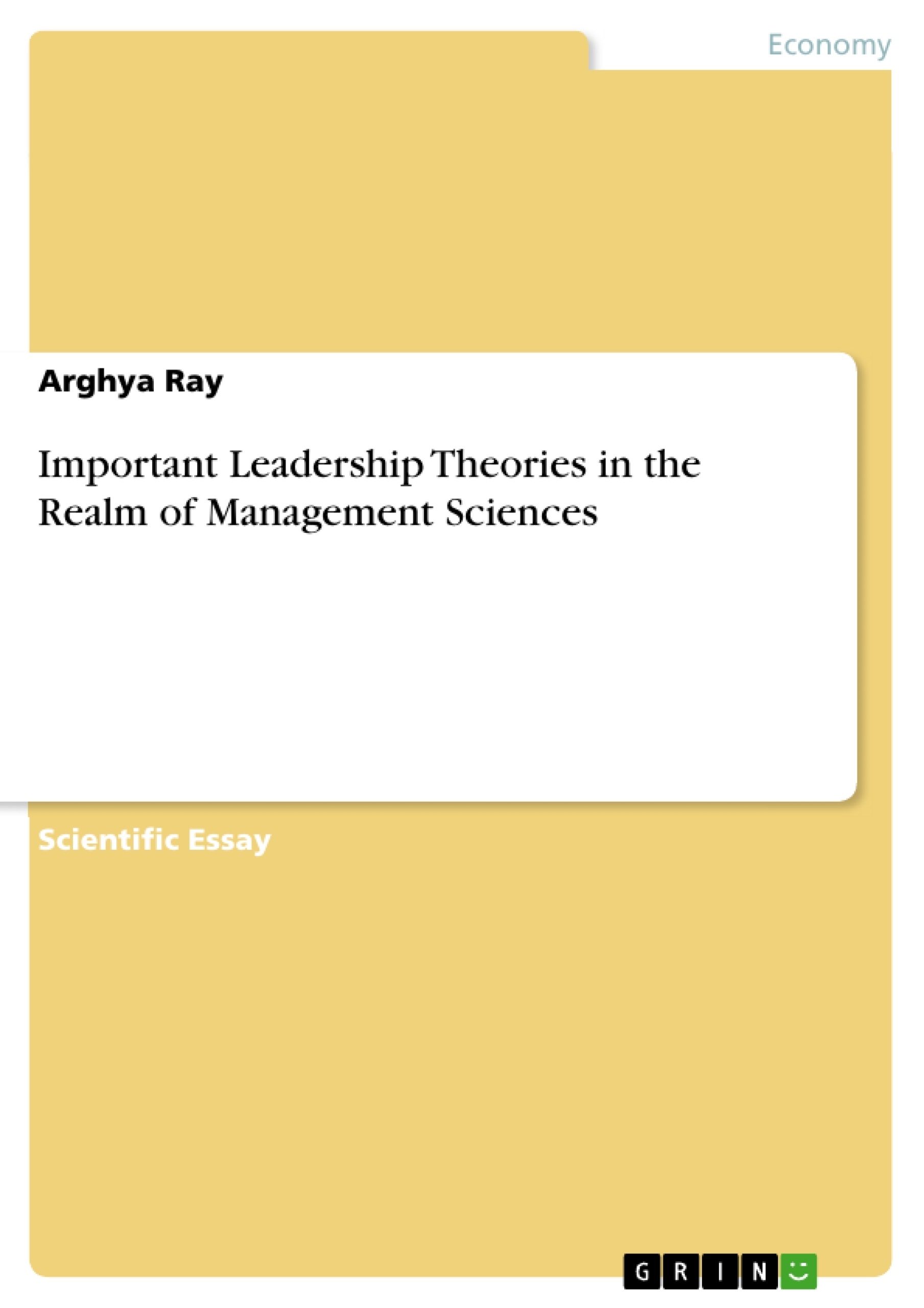This paper is aimed at providing the students of management with a holistic view of modern leadership research in the field of management sciences. It introduces the students to the basic understanding of leadership in a general way. Next, leadership in relation to business economics, organization and governance is explained. Then, we discuss on different categories of leadership theories. These are: Great Man Theories, Trait Theories, Contingency Theories, Management Theories (with special reference to Transactional Leadership Theory), Relationship Theories (with special reference to Transformational Leadership Theory, Situational Theories, Participative Theories (with special reference to Path-Goal Theory), Behavioral Theories (with special reference to Managerial Grid Model) and Leadership Member Exchange Theory. The individual theories, which are especially important and have attention from the academicians, have been separately mentioned under their respective categories. The paper ends with a suitable conclusion and an authentic reference list.
INDEX
Abstract
Introduction
What is Leadership all about?
Great Man Theories
Trait Theories
Contingency Theories
Management Theories
Transactional Leadership
Relationship Theories
Transformational Leadership Theory
Special Note
Situational Theories
Participative Theories
Path-Goal Theory
Behavioral Theories
Managerial Grid Model
Leadership Member Exchange Theory
Conclusion
References



